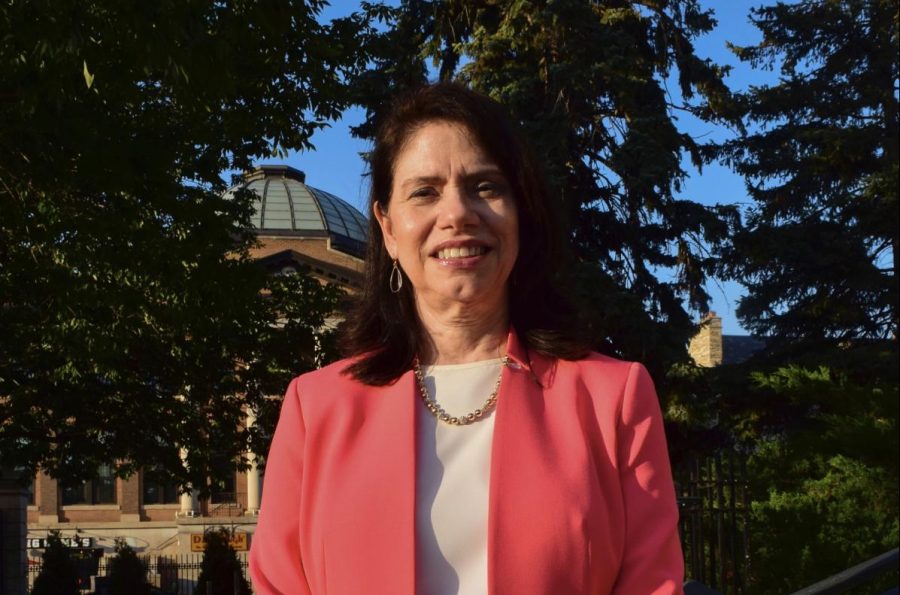Amid student pushes for increased mental health resources, the University of Minnesota’s Office for Student Affairs added a new position focused on helping students with a wide range of issues.
Emily O’Hara, whose official title is care manager, said she helps students with issues ranging from difficulties in coursework to mental health issues to homelessness. While her position covers a broad spectrum of student issues, she helps direct students for more specific resources, like places to get professional mental health help, she said.
O’Hara is not connected with any one college or the counseling service at the University, she said.
While case managers can direct students to help at specific places like Boynton Health Service, O’hara’s position is meant to care for any situation, said Assistant Vice Provost for Student Advocacy and Support Laura Knudson.
She said she thinks the position will become more common at other offices at the University.
“A lot of [the care manager’s work] is based on mental health on any level, no matter where [students] are at,” Knudson said. “Even if they’re having what seems like a minor issue, if that’s not helped or addressed quickly, that can get to be a lot deeper of an issue.”
According to the 2015 College Student Health survey–Boynton Health Service, 32.7 percent of University students reported being diagnosed with a least one mental health condition within their lifetime. Almost 64 percent of students at the University have faced an adverse childhood event.
In March, O’hara’s first month, she said she received about 30 calls and now sees about about 20 students on a regular basis.
She also sometimes receives calls from advisers or professors who think she could help one of their students.
“Now we have a dedicated person to really help follow a student through a process and make sure they are connected to the right places,” Knudson said.
Knudson said areas she wants O’hara to focus on include food insecurity and homelessness. While it’s hard to track, Knudson said, homelessness is a growing problem on college campuses.
Knudson has been with the University for 12 years and said she thinks the creation of O’Hara’s position has had a unique amount of support from the University.
She said that decreased stigmatization of mental health has also helped jumpstart the new position.
“It’s one of the hot topics on all college campuses along with sexual misconduct. … I just think you see more people recognizing they [need] to ask for help,” Knudson said. “The need keeps increasing with awareness.”
O’Hara said she thinks University students campaigning for mental health resources also contributed to the creation of her position.
“The students are really organized and passionate about mental health. The student body last year was really active, and I would say at the forefront of the advocacy work that happened to get those new positions. … We would give most of the credit, if not all to them, and I think it really inspires me to keep working hard at this and helping our students,” she said.
Knudson also talked with former Minnesota Student Association president Joelle Stangler and credits the creation of O’Hara’s position with the last year’s student government’s work.
“When it comes to the care manager position having a person who can help coach students along their journey, who can be a form of intervention if they need support, whether it comes from mental health or displinary action or something else that falls within Emily’s wheelhouse,” Stangler said. “I think that it’s an incredibly important investment for the University to make.”







